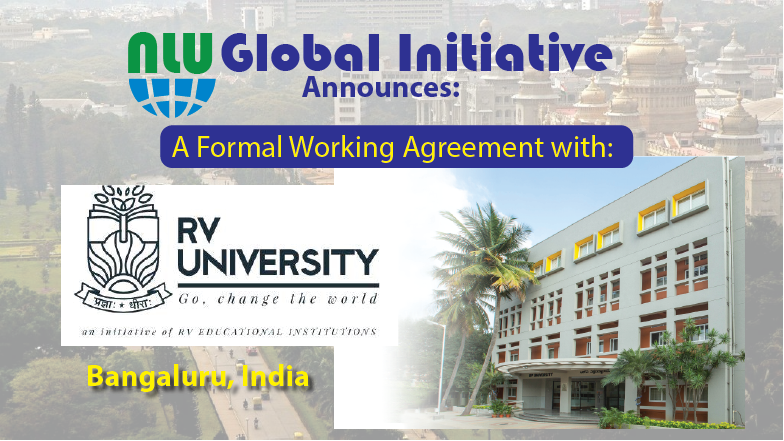The Computer Science & Engineering Department at RV University in India has come to a long-term formal agreement with the Natural Language Understanding Global Initiative to work on rule-based NLP. Lead by Dr. G Shobha, dean of the School of Computer Science and Engineering, and Dr. Merin Thomas, the school has plans to be the first university in the world to teach a class in rule-based NLP using NLP++ as a part of their curriculum starting in August 2025.
History with RV University
David de Hilster, the founder of the Natural Language Understanding Global Imitative worked with Dr. Shobha’s students on NLP projects using NLP++ while working at LexisNexis in their supercomputing group. De Hilster mentored several NLP projects including a sentiment analyzer as well as a project for developing linguistic dictionaries from the online English Wiktionary.
Dr. Shobha and her students at a conference where they presented their project on building a comprehensive English dictionary from the English Wiktionary.

The NLU Global Imitative include the first stage of a world-wide project to develop linguistic dictionaries in the major languages of the world including Indian languages, something Dr. Merin Thomas has extensive experience. The hope is to encode the dictionary information on the Indian languages collected by the team in India it dictionaries and knowledge base files in the NLP++ language.
Teaching Rule-Based NLP
As part of this newly formed agreement, RV university is looking to be the first university in the world to teach a rule-based NLP course using the NLP++ framework. Coordinated by Dean Shobha, the RV School for Computer Science and Engineering will be developing a course along with NLP++ authors David de Hilster and Amnon Meyers to teach students how to build trustworthy NLP systems.
Large language models (LLMs) like ChatGTP are all the rage but many in the computer science community recognize that statistical systems are inherently untrustworthy. Many who have worked decades in the area of machine learning and neural networks, and now LLMs, have come to the realization that the only way to create trustworthy NLP is to go rule based.
NLP++ is the first computer language specifically designed for NLP and specifically for rule and knowledge-based NLP. It is now garnering attention worldwide for its explainability, extensibility, and trustworthy nature.
Expanding to Other Countries
The NLUGI is currently seeking grants to help fund what de Hilster calls the “great knowledge migration to computers” and Indian languages are some of the most important steps given the number of speakers of Indian languages.
The NLUGI plans on making similar agreements with universities in Brazil, Latin America, the United States, and China. The goal is to create human readable linguistic dictionaries and knowledge bases using the NLP++ language which will allow for building rule-based NLP systems in the major languages around the world.
If your university is interested in joining forces with NLUGI, please contact us at contact@nluglob.org and we will be happy to talk about setting up a working relationship with you or your university.
For those interested in teaching rule-base NLP, click here.
![]()

